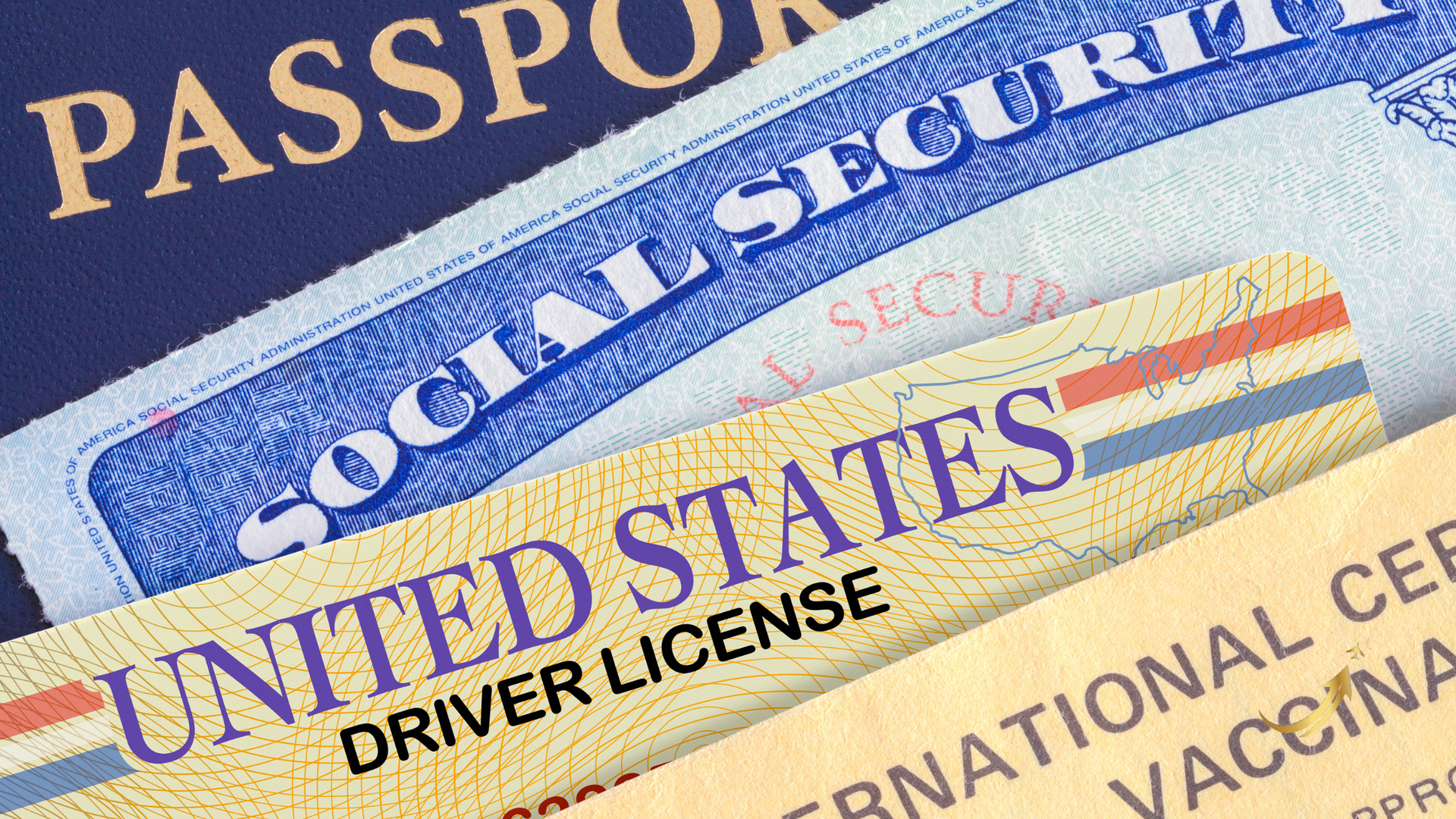8 Vaccines Needed to Help You Travel More Safely Internationally
Cynthia Amin • March 9, 2021
The time has finally arrived for your highly anticipated international trip. Your trip was planned last year, and everything has been confirmed: airplane tickets, hotel reservations, and tours. You went shopping for new clothes, got your suitcase from the closet and the excitement is growing every day as you get closer to your departure.
But wait--what about vaccines?
Is this one more preparation that needs to be added to the "To Do" list? Traveling out of the country can be daunting. Pictures of exotic destinations combined with new, curious foods dance off the pages of the travel brochures. Anticipating the unexpected can be a challenge and exciting for even the most seasoned traveler. You have contacted your doctor and your doctor recommends several vaccines. But are they necessary? How do you evaluate the risks? And now, we may have to add another vaccine to travel to the list.
Covid-19
As more people around the world receive the Covid-19 vaccine, people may be more willing to travel. While getting the vaccine can minimize travel restrictions, there are still many factors to consider. There is even a chance that individual states could require visitors to be vaccinated for COVID-19, in the same way they require public school students to show proof of vaccinations for certain diseases, like polio and hepatitis A,
The travel industry — not to mention travelers — are eager for a return to normal so people can once again fly, cruise and road-trip like they did before the pandemic. Now that the Covid-19 rollout is underway, many are hoping it will be the key to help the world get traveling again.
Nothing has been confirmed yet, but the COVID-19 vaccination may not be required to board domestic flights, but a Covid-19 vaccine may be required to travel internationally. There are no answers now, but this is something we are going to have to watch.
Hepatitis B
Hepatitis B is a viral infection that is spread through contact with blood. In the US, Hepatitis B is primarily found in adults, and is spread through intimate contact or through sharing needles used with illicit drugs. Hepatitis B is more common in the general population in East and Southeast Asia and in Sub-Saharan Africa. Unless you plan to spend extended periods in close contact with infected persons, the risks of contracting Hepatitis B while traveling is extremely small.
Polio
Polio is an infectious disease caused by a virus that attacks the nervous system. The disease is seen primarily in children under five years of age; the initial symptoms include fever, fatigue, headache, vomiting, stiffness in the neck, and pain in the limbs. Polio is nearly eradicated but was once common throughout the undeveloped world. There have been no cases of wild polio in the Western Hemisphere since 1991.
Tetanus
Tetanus is an acute, spastic paralytic illness caused by a toxin released from the bacterium Clostridium tetani. The bacterium is found in soils and animal feces throughout the world. Neonatal tetanus is the deadliest and the type most often pictured in textbook cases of tetanus.
Tetanus is not a uniformly fatal disease. If you are traveling to remote areas, such as the backpacking in areas without medical care and without clean water, you may want to consider your tetanus status.
One thing to remember is that a tetanus shot does not guarantee protection. If you get cut, your best protection against tetanus is to thoroughly clean the wound with large amounts of warm, soapy water, and to encourage the injury to bleed profusely for a few minutes. Apply hydrogen peroxide to clean your wound, followed by a topical antibiotic ointment such as Neosporin.
What About Exotic Diseases?
When traveling overseas, it is possible to encounter some illnesses not generally seen in the US. The Centers for Disease Control lists the following infections as possible concerns for anyone traveling to any destination around the globe:
Typhoid Fever
Typhoid Fever, an acute, febrile illness caused by the bacterium salmonella typhi, is characterized by fever, headache, and enlargement of the spleen. The greatest risk is for travelers to the Indian subcontinent and to developing countries in Asia, Africa, and Central and South America who will have prolonged exposure to potentially unrefrigerated foods.
Yellow Fever
Yellow Fever is a mosquito-borne viral illness that can vary in severity from a flu-like syndrome to severe hepatitis and hemorrhagic fever. The disease occurs only in sub-Saharan Africa and rural, tropical South America.
Japanese Encephalitis
Japanese Encephalitis is another mosquito-borne viral infection that is found throughout Asia, particularly in rural or agricultural areas of the temperate regions of China, Japan, Korea, and eastern Russia. The risk to short-term travelers to cities is extremely low. For all these potential infections, it is important to obtain a natural mosquito repellant, one that is free of DEET, the toxic additive found in most insect repellants.
Hepatitis A
Hepatitis A is a viral disease that has an onset of fever and diarrhea, followed within a few days by jaundice (turning yellow). The disease ranges in clinical severity from no symptoms to a mild illness lasting one to two weeks.
Although widespread throughout the world, Hepatitis A can be prevented by carefully following the hygiene and following a few food recommendations:
1. Eat only cooked foods hot to the touch. Avoid eating food from street vendors.
2. Avoid eating raw fruits and vegetables unless you peel them yourself.
3. Drink only "safe" beverages: sealed bottled water, hot tea, coffee, beer, wine, and boiled water; avoid drinking beverages with ice.
5. Avoid eating raw or undercooked meat and seafood (hepatitis risk).
6. Avoid all tap water and be careful of getting shower water in your mouth. When dining in restaurants, ask whether the salad greens have been washed in boiled, distilled, or bottled water.
7. Avoid milk and dairy products of unknown refrigeration standards.
What is Recommended and What is Required?
Although the CDC recommends that all travelers obtain vaccines when traveling abroad, it is important to realize that, with one exception, no vaccine is required before you travel anywhere in the world: they are only "recommended."
You will not be required to have a vaccination record to enter a country, nor will you be required to obtain vaccines to return home. The sole exception is the Yellow Fever vaccine, which may be required if you travel to or from a South American or African country infected with Yellow Fever.
The recommendations can vary from country to country; if such a destination is part of your travel plans, you should look up the Yellow Fever requirements for that specific country.
I have been traveling the world for many years and I have only had to get a yellow fever vaccine. If, however, a Covid-19 vaccine is required for travel, I will be happy to get the vaccine and show my “Covid-19 Vaccine” passport to continue to travel the world.
Final Thoughts
As of now most countries are launching and working on their passport programs. As the vaccine becomes widely available and technology improves, an international standard vaccine passport may be required for travel.
If you enjoyed these tips and would like to know more about Colesville Travel, please email us or give us a call at 301-989-1654.
Until then, stay inspired until we can safely travel again.
Cindy
Blog

Practical and Soulful Strategies for Mindful, Meaningful Travel. In an era when travel is often filtered through social media, it’s easy to focus more on the highlight reel than the experience itself. But the richest moments in travel don’t usually happen when you're taking the perfect photo but happen when you step away from the camera and immerse yourself in the world around you. As a travel advisor with more than 30 years of global experience, I’ve seen how the most transformative journeys are the ones where travelers slow down, engage deeply, and fully show up. Here's how you can take your next trip “beyond the selfie” and into the heart of your destination. 1. The Power of Slow Travel Slow travel is about quality over quantity. You don’t have to cover a dozen cities to have a meaningful trip. In fact, the more places you try to cram in, the less you truly experience any of them. Remember, you don’t have to see everything. In fact, trying to “do it all” often leaves you feeling exhausted and disconnected. Slow travel invites you to go deeper, not faster. It’s about: Choosing quality over quantity Spending time in fewer places Allowing space for spontaneity Take time to sit in a café and people-watch, get lost on a side street, or spend a full afternoon exploring a local market. Slow travel isn’t rushed; it’s rooted. And the memories last longer because you are present enough to notice them. That’s where the magic happens. 2. Engage All Five Senses To be truly present, you need more than your eyes. Lead with your senses. Listen to the languages and rhythms of daily life. Smell the scent of spices or morning bread baking. Taste something new—even if it scares you a little. Touch handmade textiles or the cool stone of ancient walls. Feel the sun, the breeze, embrace every moment. Engage your senses as soon as you arrive in your destination, it will make your experience more vivid, memorable and unforgettable. 3. Connect with People, Not Just Places Every destination is brought to life by its people. It’s not just the landmarks that you visit, it’s the conversations, the laughter, and the local people that you meet. Here are some ways to build connection: Learn a few phrases in the local language Ask your guide about their favorite neighborhood Take a cooking class or dine in a local home Support family-run businesses and artisans Cultural exchange isn’t a one-way street. Being open creates space for shared learning and meaningful impact. 4. Journal the Experience, Not Just the Events You don't need to be a writer to keep a travel journal. You just need to be curious and willing to reflect. Ask yourself questions like: What surprised me about this place? What caused me to stop and think about what I just saw? What do I want to bring home besides souvenirs? How about a new a mindset? Journaling helps you slow down, make sense of your experiences, and capture memories that photos alone can't capture. 5. Unplug with Intention Being present sometimes means stepping away from technology. Social media can wait—but the moment you're in won't last forever. Try this: Schedule one “unplugged” day or afternoon during your trip Leave your phone in your bag during meals or museum visits Take as many photos as you like, but don’t live through the lens You may be surprised by what you notice when you’re not constantly taking pictures. 6. Travel With Intention When you travel with intention, you’re not putting on a show or collecting content, you’re entering a conversation with the world. Every destination has something to teach you, if you're willing to listen. Rather than treating travel like a checklist or a social media post, approach it as a two-way exchange. Learn to connect with the land, its people, and yourself. Let your journey be more than a photo op. Let it be a time to listen, to feel, to evolve. When you return home, the most treasured souvenirs won’t be the souvenirs you purchased or your social media posts. It will be the changes that you made within yourself. Final Thoughts Ready to travel deeper? At Colesville Travel, we design immersive journeys for curious, culturally aware travelers who want more than just the postcard experience. Whether you're dreaming of traveling to Africa, South America, Europe or any other continent, Colesville Travel can curate a trip that feeds your mind, body and soul, and not just your camera roll. Let Colesville Travel plan your next meaningful escape. Contact us at 301-989-1654 or email us at cindy@colesvilletravel.com . You can also visit our website www.ColesvilleTravel.com CONTACT INFORMATION Cynthia Amin Colesville Travel Phone: 301-989-1654 Email: cindy@colesvilletravel.com Website: https://www.colesvilletravel.com #colesvilletravel #travelwithcindy #MindfulTravel #TravelWithIntention #SoulfulJourneys #SlowTravelMovement #MeaningfulTravel #AuthenticTravelExperiences #WomenWhoTravelWell #TravelDeeperLiveLighter #UnpluggedAdventures #BeyondTheSelfie #PresenceOverPictures #TransformationalTravel

In a world where travel has become more accessible than ever, many experienced travelers are craving more than just beautiful views and passport stamps. They want to travel with intention—to experience cultures deeply, engage meaningfully, and return home changed. This is the heart of purposeful travel, and it's becoming the gold standard for mature explorers who seek more than a vacation. What Is Purposeful Travel? Purposeful travel is about making meaningful connections—with people, places, history, and even yourself. It's an immersive style of travel where the goal isn’t just to relax, but to grow, learn, and give back. Whether it's standing at the Door of No Return in Ghana, listening to stories of resilience in South Africa, or sharing a meal with locals in a small Italian village, purposeful travel allows you to walk away with new perspectives and a fuller heart. Why Mature Travelers Are Leading This Movement Mature, well-traveled individuals are at the forefront of this shift because they understand that experiences matter more than souvenirs. They’re not looking to check boxes—they’re looking to transform the journey into a personal legacy. This kind of travel is ideal for: • Those celebrating milestone birthdays or retirements • Women’s groups seeking personal enrichment • Solo travelers craving connection without compromise • Couples wanting to deepen their bond through shared adventure What Does Purposeful Travel Look Like? Here are just a few examples from real journeys I curate: Ghana: Trace the powerful history of the African diaspora, visit local artisans, and experience vibrant culture through dance, storytelling, and cuisine. Join us on our next journey to Ghana on February 12 – 21, 2026. Click Here South Africa & Zimbabwe: Witness the breathtaking beauty of nature while exploring themes of social justice, healing, and unity. Join us December 27 – January 6 for our tour of South Africa and Safari and then on to Zimbabwe, January 6 – 9, 2026. Click Here Italy: Cook with locals in Tuscany, explore ancient ruins, and engage with community-focused wineries that preserve tradition and environment. The Benefits of Traveling with Intention Connection: You’ll form real bonds with people, not just take their pictures. Reflection: Travel becomes a mirror—helping you understand your place in the world. Transformation: Many travelers report these journeys as life-changing—because they are. FINAL THOUGHTS Ready to Travel with Purpose? If you're craving more from your next adventure, more depth, more joy, more connection—purposeful travel may be exactly what your soul is seeking. Join me on a journey where your curiosity leads, your heart expands, and your travel memories become your personal legacy. Looking to connect with like-minded explorers? Join the movement of mature, passionate travelers who crave more than just vacations. Explore upcoming purposeful group trips to Ghana, South Africa, and beyond by visiting our website https://www.colesvilletravel.com or contact me at cindy@colesvilletravel.com to start planning your intentional journey today. Cindy Looking to connect with like-minded explorers? Join the movement of mature, passionate travelers who crave more than just vacations. #PurposefulTravel #TransformationalTravel #MatureTravelers #CulturalImmersion #TravelWithMeaning #SoulfulJourneys #WomensTravelGroup #GroupTravelExperiences #ExploreWithHeart #TravelConnections #AfricaTravel #GhanaTour2026 #SouthAfricaAdventure #MeaningfulMoments #LegacyTravel #TravelForConnection #TravelBeyondTheSurface #TravelOver50 #CuratedExperiences #ColesvilleTravel

Will TSA really deny you if you don’t have a REAL ID? Here is what you need to know before you fly. If you've been hearing about REAL ID and wondering if it really matters—yes, it really does. As your trusted travel advisor, I’m here to explain it in a way that’s simple, clear, and traveler friendly. Whether you're planning your next girls' getaway, family vacation, or solo adventure, knowing the rules can make all the difference between breezing through TSA… or missing your flight. What Is the REAL ID, Anyway? The REAL ID Act was passed by Congress back in 2005, but enforcement has taken a while to go into effect. It sets higher security standards for state-issued IDs, like driver’s licenses. After multiple extensions, the big day is finally approaching. Starting on May 7, 2025, you’ll need a REAL ID (or an acceptable alternative like a passport) to board a domestic flight within the U.S. What Happens If You Don’t Have a REAL ID? To be clear, if you show up at the airport without a REAL ID or an approved alternative form of ID, the TSA will not let you through security . That means no boarding pass, no gate access, no travel plans. As much as I love spontaneous travel adventures, this isn’t the kind you want. How Do You Know If You Have a REAL ID? Why not check your driver’s license today? If you see a gold or black star in the upper right-hand corner, congrats—you’re REAL ID ready! If you don’t, it's time to contact your local DMV and ask about upgrading your ID. Keep in mind that you'll need to bring specific documents (like a birth certificate or passport, proof of address, and Social Security card) to apply. Do You Need a REAL ID for International Travel? You don’t need a REAL ID for international flights, but you will need your U.S. passport to travel internationally and to get back into the U.S. So, take the time to check your passport and make sure it’s valid for six months past your departure date. If you travel frequently for work, family visits, or that long-awaited girls’ trip, having a REAL ID is simply more convenient for domestic travel. It's one less thing to worry about when you're juggling bags, boarding passes, and grabbing food at the airport. Why This Matters Now As your travel advisor, I want your travel experience to be seamless from start to finish. Nothing spoils a trip faster than being turned away at the airport. With the May 2025 deadline approaching, now is the time to check your ID and plan to upgrade it if needed. DMV appointments can book up quickly, and some states are still dealing with backlogs—don’t wait until the last minute! Bonus Travel Tip: Bring a Backup Even with a REAL ID, I always recommend traveling with a second form of identification (like your passport or Global Entry card), especially if you’re heading on a bucket-list trip. It’s a small step that can save you a major headache. Final Thoughts Yes, the TSA will deny you boarding for domestic flights if you don't have a REAL ID or an acceptable alternative starting May 7, 2025. Let’s make sure that it never happens to you. ✨ Need help planning your next trip or have questions about travel documents? I’m here to help. Whether it’s booking your next flight, organizing a custom itinerary, or just giving you peace of mind—let’s make your next journey stress-free and unforgettable. Contact Colesville Travel at info@colesvilletravel.com or visit our website at https://www.colesvilletravel.com In the meantime, stay inspired, Cindy REAL ID deadline 2025, TSA REAL ID requirements, do I need REAL ID to fly, what is a REAL ID, REAL ID for domestic flights, TSA ID rules, travel tips USA, travel documents to fly, how to get a REAL ID

Have you ever found yourself stuck in an airport with hours to kill? Instead of aimlessly wandering through duty-free shops or mindlessly scrolling through your phone, why not turn your layover into a mini adventure? Welcome to the Airport Layover Challenge—where we prove that even a short stopover can be an unforgettable travel experience! Why Waste a Layover When You Can Explore? Many travelers see layovers as an inconvenience, but seasoned adventurers know they can be an opportunity. Some of the world’s best cities are just a short ride from their international airports. With a little planning and a spirit of adventure, you can squeeze in sightseeing, delicious food, and even a bit of culture—without missing your next flight! Step 1: Check the Clock (and the Rules!) Before dashing off into the city, check a few key details: ✅ Visa requirements – Some countries offer visa-free entry for short layovers, while others require advance applications. ✅ Time needed to clear immigration and security – Factor in the time it takes to get back to the airport. ✅ Transportation options – Choose a fast and reliable method to get downtown (trains and express buses are usually best!). ✅ Bag storage – Some airports have luggage lockers so you can explore hands-free. Step 2: Pick Your Adventure! Depending on how long you have, here are some exciting ideas for making the most of your layover: 1. The Lightning Round (3-4 Hour Layover) Not much time? Stay close to the airport but still soak in the culture! Singapore (Changi Airport): Visit Jewel Changi’s famous Rain Vortex, Butterfly Garden or hop on a quick city tour to Marina Bay Sands. Istanbul (IST): Take a taxi to the Blue Mosque and Hagia Sophia, grab some Turkish tea, and be back in time for your next flight. Amsterdam (Schiphol Airport): Catch a 15-minute train ride to Centraal Station, wander the canals, and grab a stroopwafel before heading back. 2. The Half-Day Explorer (5-7 Hour Layover) With a bit more time, you can dive deeper! Paris (CDG): Take the RER train to Notre Dame, stroll along the Seine, and snap a selfie at the Eiffel Tower before heading back. Tokyo (Narita or Haneda Airport): Jump on the Narita Express or Monorail and enjoy a sushi lunch in Shibuya or Asakusa before returning. Dubai (DXB): Head to the Burj Khalifa, walk through Dubai Mall, and enjoy a quick desert safari if you're feeling adventurous! 3. The Full-On Adventure (8+ Hour Layover) Got a whole day to kill? That’s wonderful! London (Heathrow or Gatwick): Ride the Heathrow Express to Paddington, tour Buckingham Palace, see Big Ben, and indulge in fish and chips. Beijing (PEK or PKX): Take advantage of the 144-hour visa-free transit to visit the Great Wall of China or the Forbidden City! New York City (JFK or EWR): Hop on the AirTrain to Manhattan, stroll through Central Park, and grab a famous New York slice of pizza. Step 3: Make It Back in Time! No matter how exciting your layover adventure is, DON’T miss your next flight! Aim to be back at the airport at least 2 hours before departure. Have a transportation backup plan in case of delays. Set a timer or alarm so you don’t lose track of time while exploring. Why You Should Start Planning Layover Adventures Instead of dreading long layovers, think of them as "bonus vacations." You get to experience an extra city, even if it’s just for a few hours. Plus, if you plan smartly, you can check off bucket-list destinations without needing an extra trip. Final Thoughts The next time you're booking a flight, don’t avoid layovers—embrace them! Who knows? Your next layover might just become the highlight of your journey. Would you try an Airport Layover Challenge? Let me know in the comments! If you enjoy reading this blog, feel free to forward to your friends, family and colleagues. If you want assistance booking your next trip, contact Colesville Travel at info@colesvilletravel.com or visit our website at https://www.colesvilletravel.com In the meantime, stay inspired, Cindy #LayoverChallenge #AirportAdventures #LayoverExploration #TravelMore #Wanderlust #QuickCityTour #TravelTips #ExploreTheWorld #BucketListTravel #AirportLayover #FastTravel #AdventureAwaits #ShortTripBigExperience #LayoverGoals #Globetrotter

Whether you're a frequent traveler or traveling on your first flight, being prepared is important for a smooth and stress-free trip. From essential documents to last-minute to-dos, here are 25 things you should do before boarding a plane to make sure you have a comfortable and enjoyable experience. 1. Check Your Flight Details Double-check your flight number, departure time, and terminal to avoid any surprises on the day of travel. 2. Ensure Your Passport and Visa Are Valid If you’re traveling internationally, ensure your passport is valid for at least six months beyond your return date. Check visa requirements for your destination as well. 3. Complete Online Check-In Most airlines allow online check-in 24-48 hours before departure. This can save you time at the airport and help you secure a better seat. 4. Download Your Boarding Pass Having a digital boarding pass on your phone reduces the risk of losing a paper ticket and speeds up airport check-ins. 5. Review Baggage Policies Check your airline’s baggage allowance and restrictions to avoid unexpected fees or delays at security. 6. Pack Smartly and Follow TSA Guidelines Ensure your carry-on follows TSA liquid restrictions (3.4 oz per container) and pack essentials like medications, chargers, and a change of clothes in your personal bag. 7. Weigh Your Luggage Overweight baggage fees can be costly. Weigh your luggage at home to ensure it meets airline regulations. 8. Label Your Bags Attach a luggage tag with your name, phone number, and email in case your bags get lost. 9. Arrange Airport Transportation Plan how you’ll get to the airport, whether it’s by car, rideshare, or public transport, and factor in potential traffic delays. 10. Check the Weather at Your Destination Knowing the weather helps you pack appropriately and prepare for potential flight delays. 11. Notify Your Bank About International Travel Avoid your credit card getting flagged for fraud by informing your bank of your travel dates and destinations. 12. Download Important Travel Apps Install apps like airline trackers, Google Maps, translation tools, and ride-hailing services for a smoother trip. 13. Charge Your Devices Make sure your phone, tablet, and other electronics are fully charged before heading to the airport. 14. Pack Snacks and a Reusable Water Bottle Airport food can be expensive. Bring snacks and an empty water bottle to fill after security. 15. Dress Comfortably Wear comfortable clothing and shoes, especially if you have a long flight ahead. 16. Secure Your Home Lock doors and windows, turn off appliances, and set up a security system if needed before leaving for the airport. 17. Have Your Travel Documents Ready Keep your passport, ID, boarding pass, and itinerary easily accessible. 18. Know Your Airline’s COVID-19 Policies Some airlines and destinations may have specific health requirements, so check for any updates before flying. 19. Bring a Neck Pillow and Travel Essentials A neck pillow, noise-canceling headphones, and an eye mask can make your flight much more comfortable. 20. Take a Picture of Your Luggage Having a photo of your bag can help if it gets lost or delayed. 21. Set an Out-of-Office Message (If Needed) If you’re traveling for an extended period, set up an automatic email response. 22. Plan for Airport Security Wear slip-on shoes, avoid excessive jewelry, and be prepared to remove laptops and liquids at security checkpoints. 23. Use the Restroom Before Boarding Avoid the rush and use the airport restroom before getting on the plane. 24. Stretch and Move Around Take a walk around the airport to loosen up before sitting for an extended period. 25. Relax and Enjoy Your Trip! Once you've completed your checklist, take a deep breath, relax, and look forward to your trip ahead! Following these 25 steps can help you have a seamless airport experience and start your trip on the right foot. If you enjoyed reading these tips, feel free to forward to your friends, family and colleagues. If you want assistance booking a trip contact Colesville Travel at info@colesvilletravel.com or visit our website at https://www.colesvilletravel.com In the meantime, stay inspired, Cindy

Traveling abroad can be an exciting and enriching experience, but even the most experienced travelers can make mistakes that lead to stress, unexpected costs, or even safety concerns. Here are 17 of the most common mistakes travelers make and how you can avoid them for a smooth and enjoyable trip. 1. Not Checking Passport & Visa Requirements Mistake: Assuming your passport is valid and that you don’t need a visa. Solution: Always check your passport’s expiration date and research visa requirements well in advance. Some countries require your passport to be valid for at least six months beyond your stay. 2. Failing to Notify Your Bank & Credit Card Company Mistake: Your bank may block your card for suspicious activity if you suddenly make international transactions. Solution: Inform your bank of your travel plans to avoid declined transactions and carry multiple forms of payment. 3. Overpacking Mistake: Bringing too much luggage, making it difficult to navigate airports, trains, and streets. Solution: Pack light, choose versatile clothing, and use packing cubes to organize your suitcase efficiently. 4. Not Getting Travel Insurance Mistake: Thinking travel insurance is unnecessary and skipping it to save money. Solution: Always purchase travel insurance to cover medical emergencies, trip cancellations, and lost baggage. 5. Ignoring Currency Exchange Rates & Fees Mistake: Exchanging money at the airport or using debit/credit cards without checking foreign transaction fees. Solution: Withdraw local currency from ATMs for better exchange rates and consider a no-foreign-transaction-fee credit card. 6. Not Researching Local Customs & Laws Mistake: Accidentally offending locals or breaking laws due to a lack of cultural awareness. Solution: Learn basic etiquette, dress codes, and important local laws before arriving at your destination. 7. Relying Only on English Mistake: Assuming everyone speaks English and struggling with communication. Solution: Learn a few essential phrases in the local language and use translation apps if needed. 8. Forgetting to Make Copies of Important Documents Mistake: Losing a passport or other crucial documents without having backups. Solution: Make digital and physical copies of your passport, visa, travel insurance, and other important papers. 9. Not Booking Tickets & Attractions in Advance Mistake: Arriving at popular attractions only to find long lines or sold-out tickets. Solution: Pre-book major attractions, shows, and activities online to secure your spot and often save money. Your travel advisor can make sure you have all your tours booked in advance. 10. Overloading Your Itinerary Mistake: Trying to see and do too much in a short time, leading to exhaustion. Solution: Plan a balanced itinerary with time for rest, flexibility, and unexpected discoveries. Your travel advisor can help with the planning of your itinerary. 11. Not Checking Local Transportation Options Mistake: Paying too much for taxis or getting lost because you didn’t research transit options. Solution: Familiarize yourself with public transportation, download relevant apps, and check if ride-sharing services operate in your destination. 12. Drinking Tap Water Where It's Unsafe Mistake: Assuming tap water is safe everywhere, leading to illness. Solution: Research water safety and, if necessary, drink bottled or filtered water. 13. Not Budgeting for Extra Expenses Mistake: Underestimating costs and running out of money. Solution: Plan for additional expenses like tips, transportation, and unexpected fees, and always have emergency funds available. 14. Using Public Wi-Fi Without Protection Mistake: Connecting to unsecured Wi-Fi networks, making you vulnerable to hackers. Solution: Use a VPN to protect your data when accessing public Wi-Fi. 15. Being Unaware of Scams & Pickpockets Mistake: Falling for common tourist scams or not being cautious in crowded places. Solution: Stay vigilant, be wary of overly friendly strangers, and use anti-theft bags to protect your belongings. 16. Not Checking Time Zone Differences for Flights & Plans Mistake: Miscalculating time differences and missing flights or scheduled tours. Solution: Always double-check local time zones and set reminders to adjust your schedule accordingly. 17. Skipping Travel Vaccinations & Health Precautions Mistake: Traveling to destinations with potential health risks without necessary vaccines or medications. Solution: Visit a travel clinic before your trip to get recommended vaccinations and carry necessary medications, including insect repellent for mosquito-prone areas. Final Thoughts Mistakes are part of the experience of travel, but being aware of these common pitfalls can help you avoid unnecessary stress and enjoy your trip to the fullest. By planning ahead, staying informed, and remaining flexible, you’ll have a smoother, more enjoyable journey. When you are ready to book your next vacation, contact Colesville Travel at 301-989-1654 or visit our website https://www.colesvilletravel.com . Until then, happy travels and stay inspired! Cindy

Retirement is the beginning of a new adventure! With no more deadlines or early morning meetings, you finally have the time to explore the world on your own terms. Whether you’re looking for culture, relaxation, or a bucket-list experience, here are some incredible destinations to consider for your first post-retirement getaway. 1. Italy – A Taste of La Dolce Vita Picture yourself sipping wine in Tuscany, exploring the art and history of Florence, or taking a scenic ride along the Amalfi Coast. Italy is a dream for food lovers, history buffs, and anyone who enjoys the finer things in life. Take it slow, savor every moment, and embrace the relaxed Italian lifestyle. 2. Japan – A Perfect Blend of Tradition and Modernity If you love a mix of vibrant cities and serene landscapes, Japan is a must-visit. Explore the futuristic city of Tokyo, take in the breathtaking views of Mount Fuji, and experience the peaceful temples of Kyoto. Spring brings stunning cherry blossoms, while fall offers fiery maple leaves—both perfect times to visit. 3. Portugal – Affordable and Charming Portugal has it all—stunning coastlines, charming old towns, delicious food, and affordability. Explore Lisbon’s historic neighborhoods, sip port wine in Porto, or relax in the sun-drenched Algarve region. Plus, the pace of life is wonderfully laid-back, making it ideal for newly retired travelers. 4. Argentina – Tango, Wine, and Natural Wonders From the cosmopolitan city of Buenos Aires to the breathtaking landscapes of Patagonia, Argentina is a country of contrasts. Enjoy a tango show, taste world-renowned Malbec in Mendoza, or marvel at the thundering Iguazu Falls. Adventure and culture await! 5. Thailand – Exotic, Relaxing, and Affordable If tropical beaches, delicious food, and fascinating culture sound appealing, Thailand is calling your name. Explore the bustling streets of Bangkok, relax on the white sands of Phuket, or take a river cruise in Chiang Mai. Plus, it’s one of the most budget-friendly destinations on this list! 6. Canada – Nature and Culture at Their Best For those who love stunning landscapes and charming cities, Canada is a fantastic option. Explore the European feel of Quebec City, drive the scenic Icefields Parkway in the Rockies, or take in the coastal beauty of Vancouver Island. Whether you want adventure or relaxation, Canada has you covered. 7. The Caribbean – Sun, Sand, and Serenity If a tropical paradise sounds like your ideal getaway, the Caribbean is calling! From the white-sand beaches of Turks & Caicos to the vibrant culture of Puerto Rico , each island has its own unique charm. Enjoy all-inclusive resorts, breathtaking snorkeling, and laid-back island vibes—perfect for unwinding after years of hard work. 8. Australia – Adventure and Natural Wonders Australia offers a mix of cosmopolitan cities and incredible outdoor experiences. Explore the Great Barrier Reef, drive the stunning Great Ocean Road, or soak up the culture in Sydney. Whether you want wildlife encounters, wine country tours, or gorgeous beaches, Australia has it all. 9. Hawaii – Aloha to Relaxation and Adventure For a U.S.-based paradise, Hawaii is unbeatable. Each island offers something different— Maui is perfect for romantic getaways, Kauai is a nature lover’s dream, and Big Island boasts stunning volcanic landscapes. With warm weather year-round, it’s the perfect destination to unwind and embrace the aloha spirit. 10. Costa Rica – The Perfect Balance of Relaxation and Adventure If you love nature, Costa Rica is a dream destination. Experience lush rainforests, stunning waterfalls, and pristine beaches. Go zip-lining in Monteverde, soak in the natural hot springs of Arenal, or simply relax in a beachfront resort. Pura vida, indeed! Let Colesville Travel Plan Your Perfect Post-Retirement Getaway! Planning your dream trip should be exciting—not stressful! At Colesville Travel , we take care of all the details so you can simply pack your bags and go. Whether you're looking for a guided tour, a luxury cruise, or a customized itinerary tailored to your interests, we’ll create the perfect travel experience just for you. Let’s make your retirement travel dreams a reality! 📞 Call us at: 301-989-1654 📧 Email: cindy@colesvilletravel.com 🌍 Visit us online: www.colesvilletravel.com Where will your first adventure take you? Let’s start planning today! 🚀✈️

As we bid farewell to an eventful 2024, the travel industry has witnessed groundbreaking stories, transformative trends, and renewed wanderlust. From tech innovations and sustainability initiatives to the resurgence of iconic destinations, this year has set the stage for thrilling travel opportunities in 2025. Whether you’re planning your next great escape or simply dreaming of distant horizons, here’s a round-up of the year’s most compelling travel stories and trends to inspire your journeys ahead. 1. Sustainable Travel Becomes Mainstream Sustainability has gone from being a niche concern to a cornerstone of modern travel. In 2024, travelers increasingly chose eco-friendly accommodations, participated in carbon-offset programs, and supported local communities. Airlines introduced biofuel-powered flights, and more destinations enforced overtourism management policies. How You Can Embrace This Trend in 2025: Plan a trip to eco-conscious hotspots like Costa Rica or Bhutan. Look for accommodation certified by programs like Green Key or EarthCheck and support locally-owned businesses to make your travels both impactful and memorable. 2. AI-Powered Travel Planning Artificial intelligence revolutionized trip planning this year, offering travelers hyper-personalized itineraries in seconds. However, as convenient as AI may seem, it lacks the expertise, nuance, and personal touch of a seasoned travel advisor. While AI can suggest generic options, only a travel professional can curate an itinerary that reflects your unique preferences, travel goals, and on-the-ground realities. Why You Need a Travel Advisor in 2025: AI tools can’t replicate the depth of insight that comes from real-world experience. A travel advisor can anticipate challenges, offer insider tips, and secure exclusive perks that AI simply can’t provide. For truly unforgettable adventures—whether it’s exploring Italy’s wine regions or trekking in Patagonia—rely on a trusted travel expert to craft seamless and customized itineraries that go beyond the algorithm. 3. The Rise of “Set-Jetting” Movies and TV shows continued to inspire travel in 2024, with travelers flocking to destinations made famous by hits like The Crown, Emily in Paris, and The White Lotus. Film tourism boomed as fans sought to relive iconic moments on location. Your 2025 Must-Visit Locations: Tour the dramatic Scottish Highlands from Outlander, or bask in Sicily’s sun-soaked beauty, as seen in The White Lotus. Keep an eye on upcoming blockbusters to inspire next year’s travel wishlist! 4. Digital Nomad Hubs Flourish Remote work continued to reshape travel, with destinations like Bali, Lisbon, and Medellín becoming digital nomad hotspots. Long-term stay packages, coworking spaces, and special visas made it easier than ever to blend work and play. Plan Ahead: If you’re considering a workation in 2025, look for destinations with robust coworking communities and fast internet—and make time to explore the local culture. 5. Africa’s Star Continues to Rise Africa had a standout year, with countries like Ghana, Rwanda, and South Africa gaining traction for their rich cultural experiences and unparalleled natural beauty. Milestone events like the Ghana Year of Return and the Kigali Fashion Week showcased the continent’s vibrant heritage and innovation. Bucket List Additions for 2025: Plan a wildlife safari in Kenya, immerse yourself in Cape Town’s art scene, or discover Ghana’s historical landmarks. Colesville Travel frequently sponsors trip to South Africa and Ghana. Contact us for details. 6. Adventure Travel Redefined From glacier hikes in Iceland to volcano boarding in Nicaragua, adventure travel has become more diverse and accessible. In 2024, travelers sought experiences that pushed boundaries, connected them with nature, and created lasting memories. Ready to Get Adventurous? Add activities like hot air ballooning in Cappadocia or scuba diving in the Maldives to your 2025 travel plans. Many adventure companies now cater to beginners, so don’t hesitate to try something new. 7. Transformational and Wellness Travel Travelers sought purpose in their journeys this year, with wellness retreats, yoga holidays, and cultural immersions seeing a surge. Destinations like Tulum, Bali, and Sedona became havens for those seeking relaxation and self-discovery. Your Next Chapter: Consider a women’s retreat in Italy, a wellness vacation in Jamaica, a mindfulness workshop in Bali, or a cultural journey in India to recharge and reconnect. Colesville Travel is offering a trip to Italy in October 2025. Contact us for details. 8. The Comeback of Cruises The cruise industry made waves in 2024, offering travelers more flexible itineraries, small-ship expeditions, and themed cruises. Popular routes included the Mediterranean, Alaska, and Southeast Asia, while river cruising gained ground for its intimate, scenic experiences. Have you heard about the adults only Virgin Voyage cruise line? Virgin Voyages redefines cruising with its adults-only experience, modern design, and unparalleled inclusivity. Enjoy Michelin-star-quality dining, luxurious cabins, and vibrant entertainment—all included in your cost. With no buffets, no kids, and no hidden fees, it’s the ultimate getaway for relaxation, adventure, and indulgence. Step aboard and discover cruising like never before! Ask Colesville Travel about exclusive offers on Virgin Voyages or click her for https://bit.ly/3Y9hwoA Set Sail in 2025: Look for cruises that align with your interests—from culinary cruises in France to wildlife expeditions in the Galapagos. 9. Multi-Generational Travel on the Rise Family vacations took center stage as travelers prioritized bonding across generations. Villas, all-inclusive resorts, and guided tours tailored for all ages made it easier to create meaningful memories with loved ones. Travel Together: For 2025, consider group-friendly destinations like Orlando, Tuscany, or Cape Town to accommodate every member of the family. 10. Hidden Gems Shine Lesser-known destinations stole the spotlight in 2024. Countries like Indonesia, Nepal, Georgia, Albania, Oman, and even more celebrated spots like Portugal gained recognition for their breathtaking landscapes, rich history, and unique cultural experiences. Portugal’s Douro Valley charmed travelers with its wine estates and river cruises, while its lesser-explored Alentejo region offered a tranquil escape with golden plains and historic villages. There are many exciting things to do in Indonesia where you can visit Flores and Komodo Island. You can see the Komodo Dragons when you visit Komodo Island to see these ancient reptiles in their natural habitat. You can snorkel in the Pink Beach which is a beautiful and unique pink-hued beach surrounded by rich marine life. If you like to hike, you can hike Mount Kelimutu to witness the stunning colored lakes atop this active volcano. In Nepal you can visit Bandipur, a picturesque hilltop village with preserved cultural heritage and stunning views of the Himalayas. You can trek to Gosaikunda Lake, a sacred alpine lake nestled in the Langtang National Park, perfect for adventurous trekkers. Or you can explore the Kathmandu Valley and visit historic temples, stupas, and ancient royal palaces in Kathmandu, Bhaktapur, and Patan. In Georgia, visitors fell in love with the dramatic Caucasus Mountains and the ancient streets of Tbilisi. Albania, often called Europe’s hidden Riviera, wowed travelers with its crystal-clear waters and affordable luxury, while Oman’s desert adventures and stunning coastline became a favorite for those seeking a blend of history and natural beauty. Explore Beyond the Beaten Path: For 2025, trade crowded tourist spots for underexplored destinations. Hike the Caucasus Mountains in Georgia, stroll through the cobblestone streets of Portugal’s medieval towns, visit ancient forts in Oman, or relax along Albania’s pristine Riviera. Visit the Komodo dragons in Indonesia. Whether you crave adventure, culture, or serenity, these destinations promise unforgettable experiences without the crowds. Final Thoughts Plan Your 2025 Travels Now The trends and stories of 2024 have painted a vibrant picture of the evolving travel landscape. Whether you’re drawn to cultural adventures, eco-conscious getaways, or adrenaline-pumping exploits, 2025 is brimming with opportunities for exploration. Start planning your next journey today and embrace the magic of travel that transforms, inspires, and delights. Stay inspired! Cindy Contact information: Phone: 301-989-1654 Email: cindy@colesvilletravel.com Website: https://www.colesvilletravel.com #Travel2025 #TravelTrends #FutureOfTravel #TravelGoals #BucketListAdventures #SustainableTravel #AdventureTravel #TransformationalTravel #SetJetting #DigitalNomadLife #ExploreAfrica #VisitPortugal #HiddenGemsTravel #EcoTravelDestinations #TravelItaly #FamilyTravelAdventures #MultigenerationalTravel #WomensRetreats #SoloTravelInspiration #LuxuryTravelExperiences #WanderlustWednesday #TravelInspo #TravelTheWorld #ExploreMore #LetsTravel

When it comes to giving the perfect gift, nothing compares to the magic of travel. Whether it’s for the holidays, a birthday, an anniversary, or just because, gifting an experience is a meaningful way to create lasting memories. Travel gifts go beyond material possessions, offering adventure, relaxation, and the chance to explore the world. Here’s why travel is the ultimate present and how you can make it happen for your loved ones. Why Travel Makes the Perfect Gift Memories Over Material Goods : Unlike traditional gifts, travel experiences create memories that last a lifetime. Personalized Experiences : Tailor a trip to match the recipient’s interests, from relaxing beach getaways to adrenaline-filled adventures. Encourages Quality Time : Whether it’s a girlfriend getaway, solo retreat or a family vacation, travel strengthens bonds and fosters connection. Stress-Free Gifting : With travel gift certificates, there’s no need to guess sizes or preferences—let your recipient choose their dream destination. Top Travel Gifts for Every Adventurer Travel Gift Certificates : These flexible options let recipients decide when and where they want to go. Perfect for last-minute gift-giving or for those who are hard to shop for. Luxury Travel Accessories : Noise-canceling headphones Packing cubes for organized luggage Portable phone chargers Travel-sized skincare kits Unique Experiences : Hot air balloon rides Wine-tasting tours Guided city explorations Spa packages at destination resorts Subscription Services : Travel guide apps Language learning platforms Monthly delivery boxes with international snacks or wine Best Destinations for Gifting Travel 1. Tropical Escapes Hawaiian Islands : With its pristine beaches and lush landscapes, Hawaii is ideal for romantic getaways or family vacations. Caribbean Hotspots : Aruba, St. Lucia, Jamaica and the Bahamas offer relaxation and luxury in the sun. 2. Cultural Adventures Italy : Think cooking classes in Tuscany, a gondola ride in Venice, or wine tasting in Rome. Japan : From the bustling streets of Tokyo to the serene temples of Kyoto, Japan offers a mix of modernity and tradition. 3. U.S. Favorites New York City : Perfect for theater lovers, foodies, and shopaholics. National Parks : Explore iconic spots like Yellowstone or the Grand Canyon for nature enthusiasts. 4. Bucket List Experiences African Safaris : Experience the thrill of spotting the Big Five in Kenya or South Africa. Northern Lights : Iceland and Norway provide awe-inspiring views of this natural wonder. How to Gift Travel Purchase a Travel Gift Certificate : Many travel agencies (like ours!) offer customizable certificates for flights, hotels, or full vacation packages. Plan a Surprise Trip : Work with a travel advisor to design a getaway tailored to your recipient’s tastes. Create a “Travel Wishlist” : Include items like travel brochures, itineraries, and themed gifts to reveal your surprise. Collaborate with Family and Friends : Pool resources for a group gift that’s truly unforgettable. Travel Tips for Gifting Success Know Your Recipient’s Preferences : Are they beach lovers, city explorers, or mountain adventurers? Keep It Flexible : Open-ended gift certificates allow the recipient to pick dates and locations that work best for them. Add a Personal Touch : Include a heartfelt note explaining why you chose this gift and what you hope they’ll experience. Consult a Travel Professional : A trusted travel advisor can handle the logistics and ensure your gift is seamless. Final Thoughts This year, skip the typical gifts and give the ones you love an adventure they’ll cherish forever. Travel gifts offer the excitement of exploration, the joy of discovery, and memories that will be treasured for a lifetime. Whether it’s a spontaneous weekend getaway or a dream vacation, the possibilities are endless. Ready to give the ultimate gift? Contact Colesville Travel today at 301-989-1654 to purchase a travel gift certificate or plan the perfect trip for your loved ones. Let’s make their travel dreams come true! Stay inspired! Cindy Email: cindy@colesvilletravel.com Website: https://www.colesvilletravel.com #TravelGifts #GiveTheGiftOfTravel #TravelGiftIdeas #AdventureAwaits #GiftOfExperience #BucketListTravel #LuxuryTravelGifts #TravelMore #TravelGiftCertificates HolidayTravelGifts #UniqueGifts #TravelPlanning #ColesvilleTravel #travelwithcindy

